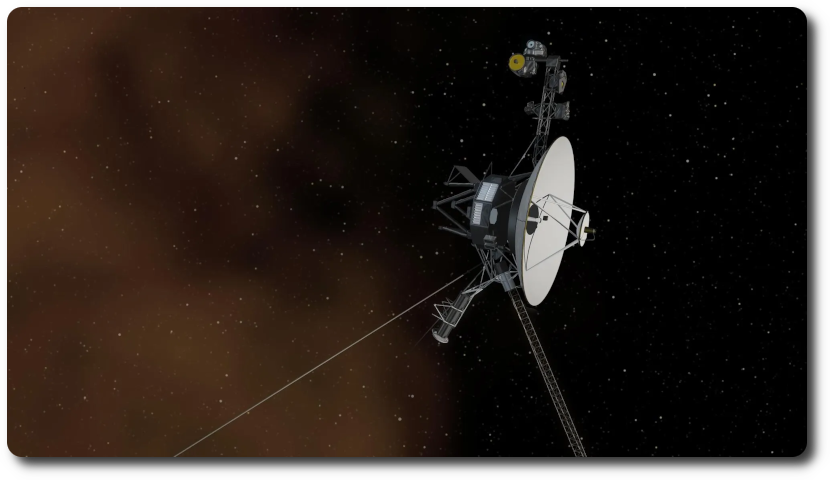Planned Obsolescence and Resilience
The world wants you passive. It wants you consuming, not creating. Watching, not doing. Obeying, not thinking. The moment you break that cycle, you become dangerous.
NASA squeezes more life from 47-year-old Voyager probes
And yet, half a century later my five year old clothes washer has broken down three times and has a dead LED panel that will cost $300 to replace (can’t be repaired.) Matthew Crawford, in his book "Why We Drive," observes:
Prejudice against the old goes deep in the American psyche. Alexis de Tocqueville reported his conversation with an American sailor in 1831: “I ask him why the vessels of his country are constituted so as not to last for long, and he answers me without hesitation that the art of navigation makes such rapid progress each day, that the most beautiful ship would soon become nearly useless if it lasted beyond a few years.” Here is a striking defense of shoddiness as a natural corollary of the faith in progress. Perhaps this sailor hit upon the hidden syllogism that can explain the otherwise baffling lousiness of so much our material culture.
The twentieth-century political philosopher Michael Oakeshott wrote that we are “ready to drop the bone we have for its reflection magnified in the mirror of the future. Nothing is made to outlast probable improvement in a world where everything is undergoing incessant improvement .... The pace of change warns against too deep attachments.”” The cultural maladjustment of the old car enthusiast lies in just this, a “too deep attachment.”1
Why is this? The argument can be made it's just another manifestation of our neurology being unequipped for modern day abundance. And as with food, a few cleaver people have figured out how to hijack and amplify the deep seated neural patterns and mental models rooted in scarcity in our wetware. This keeps us on the hamster wheel of constantly seeking as much as we can acquire lest we "starve" for want to food and status. All this in the interests of making money and adding to the wealth of a lucky few.
We CAN build durable machines, but planned obsolescence is the prevailing business model that the vast majority of consumers have accepted as unchangeable reality. Leveraging our reasoned choice, we can opt out of this cycle, although not altogether.
I have a strong resistance to tossing away things that are broken, if there's a chance I can fix them, as is the case with my clothes washer. However, there are things in my life that are not broken and yet have become obsolete in a way I can't fix. My cell phone is a good example. The only time I upgrade my phone is when essential applications no longer work because the OS is too old to handle the new features. Which means a perfectly good phone gets tossed. (Actually, I repurpose it into something else like yet another MP3 player.) Who knows if or when we'll ever become a cashless society, but until then, it's become increasingly difficult to complete financial transactions without a phone.
As this march toward an increasingly brittle reliance on technology continues, we can augment our resilience and indeed our mental health by finding ways to live without all the newness the merchants of obsolescence tireless press upon us. Purchase the highest quality clothes, tools, and other items you can afford. I purchased my Toyota truck 23 years ago and appreciate its reliability, utility, and solid construction almost every time I drive it. Take care of these things and they will be there for you when you need them.
"I believe that minimalism and act of subtraction is at the very heart of discovering ourselves because to understand who we really are, we need to prune everything that we are not. We need to be comfortable with missing out on things that everyone else does or consumes or shares, so that we can think, reflect, create and just be. Letting it go is as much about our thoughts and beliefs as it is about the objects of our desire." - Tanmay Vora
Update - 2025.03.14
Ack. Went to use one of the essential apps on my phone this morning and got this:
Unhelpful. My phone is running Android 10 and there is no option for updating the operating system.
Footnotes
1 Crawford, M. B. (2021). Why we drive: Toward a philosophy of the Open Road. HarperCollins Publishers.
"Planned Obsolescence and Resilience" last updated on 2025.03.14.
I hope you will return regularly to The Remnant's Way as I often update posts, particularly Ab Initio, and do not always publish to email posts that are meant to support or serve as reference to existing or future posts.
And please consider becoming a paid subscriber. Doing so supports my writing efforts and grants me the most precious of all resources - dedicated time for writing. And for that, I am deeply grateful.
Image Credit: NASA / JPL-Caltech





